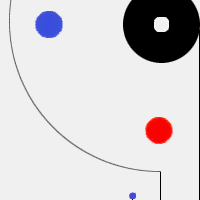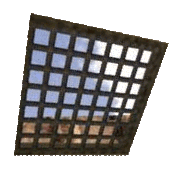First I want to say that it is not my intent to carry out an "ad hominem" attack nor to insult or defame anyone. But I wish for Mr. LeFevre and all others to understand why I choose not to transact with him and further why I believe his claim to "intellectual property" in the form of any design features of Peerless transformers are invalid. I do concede he may well have lawfully acquired the exclusive use of the name and logo. One reason I am not purchasing his product is that he is not by my standards a legitimate manufacturer of transformers in the industry sense. He is not listed in any standard directory of transformer vendors such as EEM or Thomas Register. He is not listed as a member in any trade organizations like EMCWA. There is no evidence he employs any regular employees or has any facilities beyond his residential basement. He is a wealthy yuppie who winds transformers as more or less a hobby.
I have worked in real transformer plants and can report they hire full-time transformer winders, almost all female, who wind transformers all day and get good at it. They don't hire men because they want too much money, get bored with the repetitiveness of it, and wind up quitting. It's deadly dull work. A young man with enough money to play with race cars is not a good candidate to be consistently and repetitively winding transformers of this type, and it's a safe bet Mr. LeFevre could not get a job in the average transformer plant if he applied.
Aside from this lack of confidence I have in Mr. LeFevre's ability to consistently produce transformers, I frankly resent his claims to be the rightful posessor of the unique right to make the various transformers for which he alleges to posess in-plant documentation for. For all I know, and indeed to the best of my information and belief, he paid an ex-Peerless employee with no legal claim to the property for a pile of drawings which said employee had been directed to dispose of.
Intellectual property in the legal sense consists of patents, trademarks, copyrights, and trade secrets. None of the four of these say one may not lawfully reverse engineer antique Peerless products and make a version thereof provided one does not use the name "Peerless" as a brand name, or the Peerless logo. If any features of these units are covered by patent, those patents have expired long ago. Copyright and trademark do not apply here except as I have stated earlier. Trade secret applies if and only if the person had been an employee of or contractor to the old Peerless company and if it were ruled that the company were actually still in business today.
What it comes down to is that Mr. LeFevre doesn't like people tearing down transformers and copying them. He can just not like it all he wants, by law he can do nothing. I for one do not believe it is morally wrong to do so. These designs are very old, their designer is long dead, and there is no evidence Mr. LeFevre actually purchased the company per se, and even if he did, it still wouldn't be wrong.
If someone were to tear down and copy a transformer (or anything else) made by someone in modern times designed at great expense one could argue such behavior would be ethically objectionable. Yet that's what Behringer does with many modern audio products. The fact is, simply reverse engineering others' work is SOP in most industries. All car companies buy and painstakingly dismantle each others' products. They don't copy them verbatim, but they are influenced in their designs by what other manufacturers do. In fact, I wouldn't buy a car from a company that didn't. It's the only way to ensure your designs follow the most current engineering practice.
Any supplier of transformers who openly states they don't tear down the competition's transformers is a transformer vendor that can't be doing the best quality of original work. That sounds contradictory, but it's true.
I prefer dealing with a vendor who says, "Of course we reverse engineer our competitor's product, just as they do ours. They buy them directly from us and vice versa. We think we learn something from them when we do our original designs and they learn even more from us."
Now would I buy a transformer that was advertised as an exact copy of one of Mr. LeFevre's own original designs?? No. Partly because while copying modern products like that is legal it is disreputable, and partly because copying a LeFevre original design (as opposed to a Ercel Harrison one) is like copying a Yugo instead of a Ferrari. Copy the Ferrari, even though it is a scaled-down Packard design itself.











